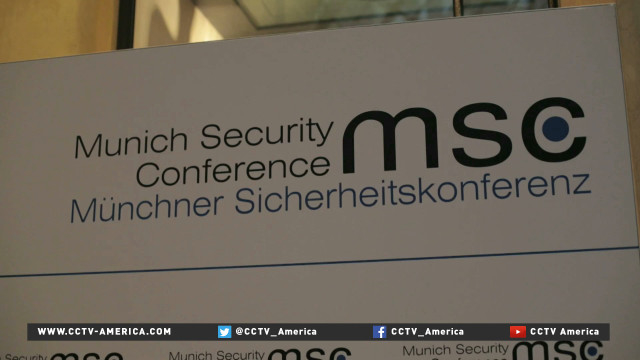At least 20 world leaders and about 400 experts and government officials are planning to attend the Munich Security Conference. This year’s theme is “The collapse of the international order”. CCTV’s correspondent Jack Barton reported this story from Munich.

Ukraine, growing tensions between the West and Russia, the sudden rise of the Islamic State group in Syria and Iraq, and growing domestic terrorism around the world are just a few of the policy challenges facing delegates at the 51st Munich Security Conference.
The key focus this year will be on Europe where the use of military force to re-draw Ukraine’s borders is being seen as the greatest threat to the global order.
The past tumultuous year also saw the rise of the Islamic State militant group in Iraq and Syria, and terror attacks in France and Belgium. Coming up with a coordinated policy is a clear challenge for NATO and Europe in particular.
“A cross-cutting theme they will focus on could be how do we enhance our capacity intelligent situational awareness and then hopefully some preventive action rather than just reactivity,” Sven Biscop, security and defense chief at Belgium’s Egmont think tank said.
At the same time, economically troubled Europe must also focus on modernizing its armed forces.
“On drones, on air-to-air refueling satellites, also on cyber security, that’s the sort of thing we need and it will difficult unless more member states take part and put more money towards it,” Biscop said.
While the conference will focus on Europe’s challenges, there will also be much discussion on global concerns.
“There are still very dangerous issues playing out in the southeast China Seas, big power relationships with China, and the relationship between China and the United States,” Ian Lesser, the senior director for foreign and security policy at German Marshall Fund of the United States said.
The agenda will also feature sessions on migration and the Ebola outbreak in West Africa.
 CGTN America
CGTN America
